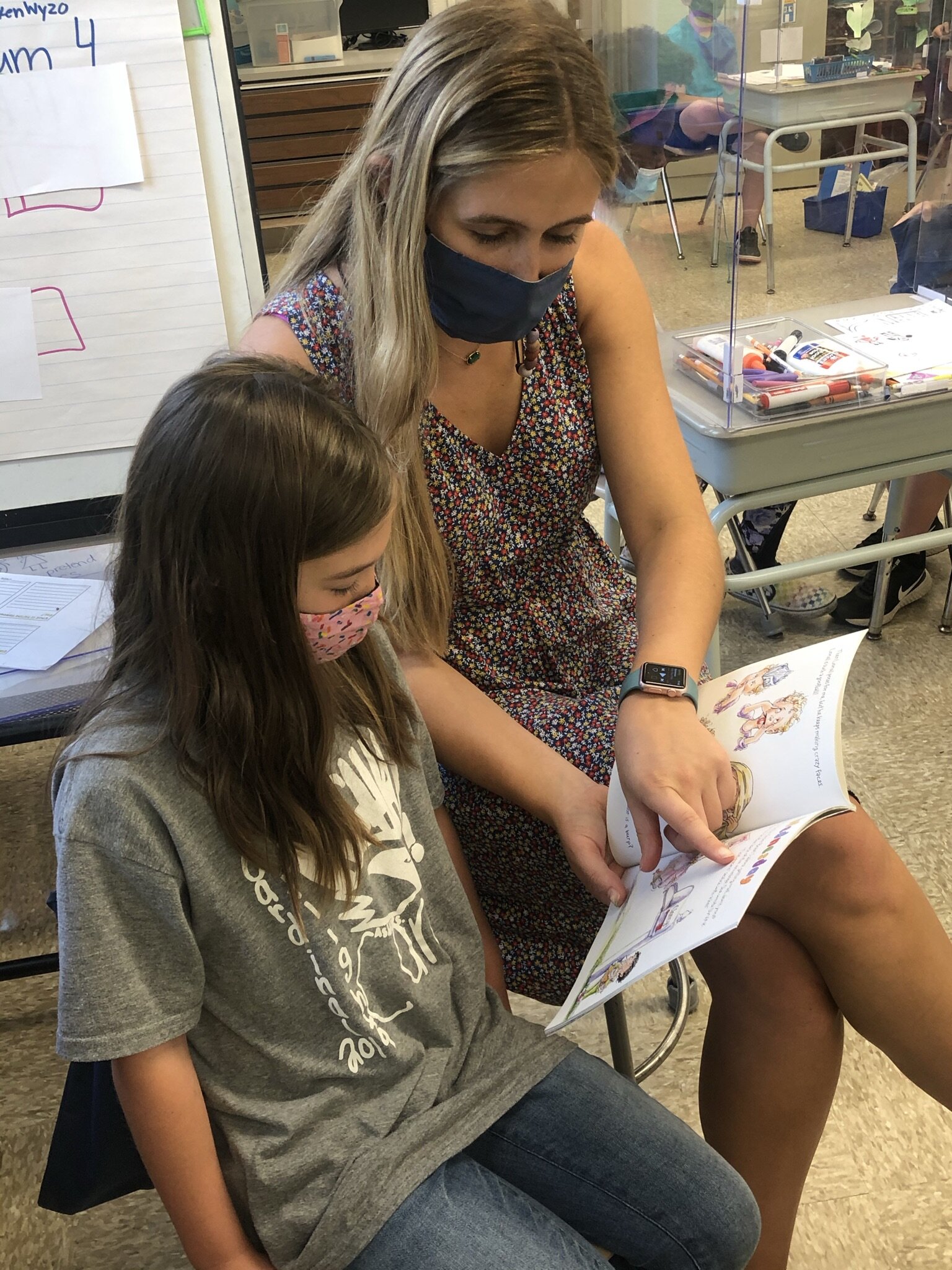One Teacher’s Uneven Professional Development Demonstrates the Need for a Solid Framework
Stephanie Duvwe with a student
Stephanie Duwve grew up in a family of educators in Ohio. Her mom is a second grade teacher and her dad is a school principal. She loved visiting them at work when she was growing up, but she wasn’t always sure she wanted to follow in their footsteps. “I knew I wanted to work with people,” Stephanie recalled. “I was thinking about becoming a physical therapist. After one day of chemistry, I quickly changed my mind.”
Challenges began on day one
Despite feeling prepared for a career in teaching, she faced challenges from day one. During her first year, Stephanie was the only person in her school teaching math at the fifth grade level. “I didn’t have someone in the building who I could pop into their class and ask for help,” she said. “As a new teacher, there were so many things I was trying to work on, and I was constantly thinking, ‘Am I doing what I should be doing? Am I on the right track?’”
Stephanie was given the option to go to another school and observe a fifth grade math teacher. Being in a constant state of overwhelm was a roadblock she couldn’t get past. “The amount of time that substitute plans take - it wasn’t worth it,” she explained.
A mentor program provided some support
She wasn’t completely without support, though. Ohio’s Department of Education has a mentor program for teachers in their first through fifth years. Unfortunately, the program is “a lot of checking boxes,” Stephanie said. “For instance, did your teacher observe you, did you talk about a lesson plan, etc. Luckily, my mentor taught in the same school as I did. I always knew I could talk to her, run ideas by her and get her feedback. Building that relationship was really helpful. She helped me with the ins and outs of the school culture, community and logistics, like where to submit grades. She was like my school mom.”
The mentorship program came with its own unique set of stressors. After participating in the program, teachers are expected to successfully complete the Resident Educator Summative Assessment (RESA). This assessment measures their ability to meet or exceed the Ohio Standards for the Teaching Profession, which all teachers take in their third year in the profession. As Stephanie explained it, “The bimonthly meetings don’t support our professional development; they teach us how to pass the RESA.”
Ohio’s New Educators provided even more support
Stephanie Duvwe
During the fall of her first year, Stephanie learned about a group called Ohio’s New Educators. As a member, she learned classroom management techniques and restorative practices. This is exactly the support I need during my first year, she thought. The group met once a month on Zoom and once a semester in person to talk about their experiences, ask for feedback and help overcoming challenges and gain valuable information to improve their teaching.
Now that she’s finishing up her fourth year in the classroom, Stephanie feels much more confident. She teaches second grade in the same school as her mom and has created her own support network.
“ELP will be so helpful for new teachers”
Because of her own uneven professional development experience, Stephanie instantly understood how beneficial the Educators Leading the Profession (ELP) program will be for new teachers. “All of the great professional development that will be provided - I don’t think anything is missing,” she remarked. “It makes me wish I was a first year teacher! Seeing how I would have grown having those different supports earlier on, before I found Ohio’s New Educators, would have been a game changer. It’ll be so helpful for new teachers to have a mentor in the building and then have someone else (like an instructional coach, which is part of ELP’s program) who is just focused on their grade level or subject.
“As I think about my first year, teachers are putting in so much time to teach and figure things out. The time they put into ELP is going to pay off in the long run because of the great content that is mapped out. The topics are so intentional - like self-care for teachers. My first year, I was at school ‘til 7pm or 8pm every evening. I now realize I could have gotten home a lot earlier if I had more support and knew what I do now.”


